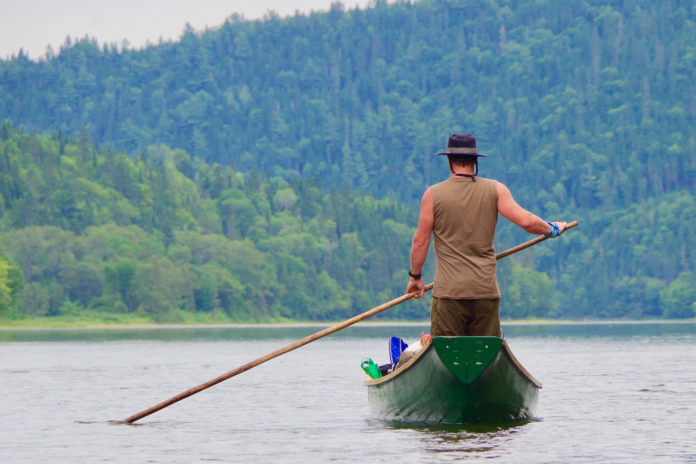
Philip Lee, chair of the St. Thomas University journalism and communications department, was nominated for a New Brunswick Book Award for Restigouche: The Long Run of the Wild River.
Lee said the book tells the story of the season he spent on the river, travelling from the headwaters to the head of tide.
“The Restigouche has captured my imagination for a lot of years and I felt like I wanted to go ahead and write that story,” he said.
Lee said he was happy to find out he was shortlisted for a New Brunswick award since he thinks his book is of interest to New Brunswickers.
He said it’s been gratifying to see the response to the book from readers who know the river well.
Along with the N.B. Book Award nomination, his novel has been included on the CBC New Brunswick Book List Selection and named an Atlantic Books Today Must-Have New Brunswick Book.
Shyla Augustine, a STU student from Elsipogtog First Nation, was also nominated in the children’s picture books category for the Mi’kmaq Alphabet Book.
Both authors will find out if they won against their two competitors on May 6 at 7 p.m. at the virtual awards ceremony.
Restigouche follows Lee during his multiple 2018 summer canoe trips on the river. He completed three trips: the first section of the river in June, followed the main current in July and reached the mouth in September.
Located in northern N.B., the Restigouche is 200 km long, defining the province’s border with Québec.
Apart from his commentary, the book follows multiple narrative arcs, intersecting the river’s societal and natural histories.
“[The narratives] weave together and flow with the flow of the river,” he said.
Lee said the book tells stories of the natural and social history of the river, including the first people of the river, the Mi’kmaq, along with the arrival of American sports fishing.
He said his work is a way of helping understand some of the bigger problems the world is facing today, from climate change to environmental damage and how they are impacting natural spaces.
“This is, in many ways, the pressing issue of our time and we need to think about nature in the ways that we live,” said Lee. “This was the way to do that, by telling the story of one river.”
